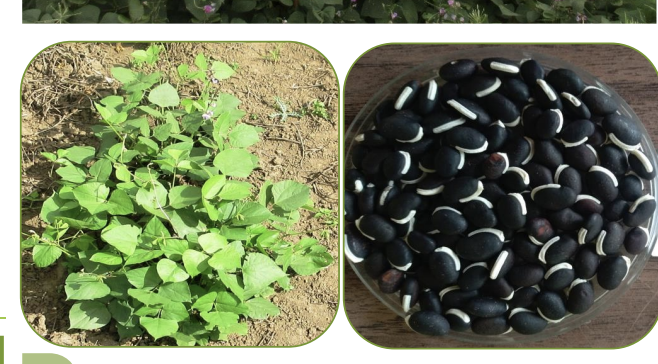Arusha
In the semi-arid heartlands of Africa, where climate unpredictability has long hindered food security and productivity, a little-known legume is emerging as a game-changer: Dolichos Lablab, commonly known as Lablab bean. With roots deeply embedded in African soil and promise that extends far into the future, Lablab is being reintroduced and repositioned as a climate-resilient, multipurpose crop thanks to dedicated scientists and agricultural innovators.
Two recently promoted varieties, NMD19 (Karamoja Red) and NMD20 (Eldoret Black K2), are already drawing attention across Eastern Africa—not just for their hardiness, but also for their remarkable versatility.
Rediscovering a Forgotten Native
Despite being native to Africa, Lablab has been largely underutilized in modern agricultural systems. Yet, its potential is nothing short of revolutionary. As the climate crisis deepens, crops like Lablab—able to withstand extended drought, grow in temperature ranges between 22–35°C, and still deliver up to 1.6 tons of seed per acre—are critical to sustainable food systems.
More than just a bean, Lablab is a nutritional powerhouse for both humans and livestock. It serves as:
- A protein-rich food comparable to common beans,
- A fodder crop during dry periods,
- A natural soil fertility enhancer,
- An intercrop with maize,
- A medicinal plant, and even
- A decorative ornamental species.
These qualities make it ideal for smallholder farmers facing water stress, low-input farming conditions, and limited access to synthetic fertilizers.
Two Varieties, One Vision
NMD19 – Karamoja Red
This red-seeded variety boasts a flowering window of 65–85 days and reaches its peak harvest between 140–180 days, allowing for 3–4 harvests per growing cycle. With a seed yield of up to 1.6 tons per acre, it has been highly preferred by Tanzanian consumers for its taste and cooking qualities.
NMD20 – Eldoret Black K2
Featuring black seeds, this variety flowers in 58–102 days and shares a similar harvest window and frequency as NMD19. Its seed yield ranges between 1–1.4 tons per acre. While Tanzanians rank it moderately in terms of palatability, Kenyan consumers give it high ratings, reflecting promising cross-border market potential.
Farmers’ New Best Friend
The two varieties are not only being tested in experimental stations but are also being shared with farmers across Tanzania and Kenya, thanks to support from The Nelson Mandela African Institution of Science and Technology (NMAIST) and a team of dedicated scientists including Dr. Pavithravani B Venkataramana, Prof. Patrick A. Ndakidemi, Neil R. Miller, and Wilfred Mariki.
By combining scientific breeding methods with indigenous knowledge and farmer feedback, these Lablab champions are building a bridge between modern science and traditional agriculture.
Market and Nutrition: A Dual Benefit
The market response has been encouraging, particularly in Kenya, where demand for NMD20 is growing. As more chefs and households discover its cooking flexibility and earthy flavor, its profile as a “wonder bean” is rising.
Moreover, its high protein content offers a nutritious option for rural communities, enhancing food and nutrition security in regions vulnerable to malnutrition and hunger.
Looking Forward
Lablab is more than a crop—it is a symbol of agricultural resilience and adaptation. As policymakers, NGOs, and farmer cooperatives seek sustainable solutions in the face of climate change, Lablab beans may soon become a staple in dryland agricultural systems from Tanzania to West Africa and beyond.
